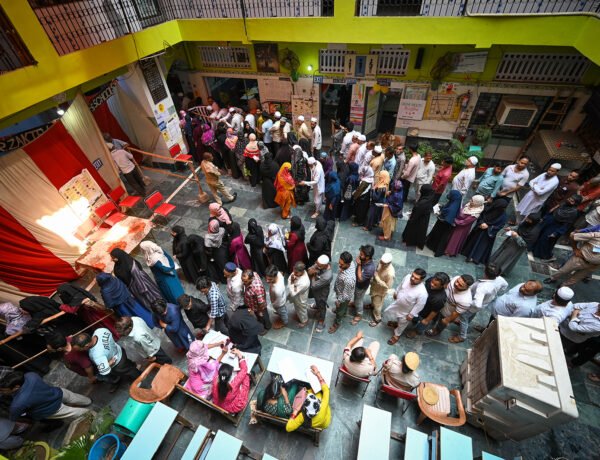Jared Golden Emerges as a Leading Voice in Energy and Environmental Debates
Representative Jared Golden has recently positioned himself as a key figure in pushing for a more moderate approach within the Democratic Party on energy and environmental policies. His stance reflects growing divisions within the party as it balances climate goals with economic and energy concerns. Golden’s push for moderation is creating a ripple effect, sparking internal debates over how the party should approach energy production, environmental protection, and the transition to a greener economy.
A Call for Balance Between Climate Goals and Energy Needs
Golden, who represents a largely rural district in Maine, has been advocating for policies that strike a balance between aggressive climate action and ensuring that energy remains affordable and accessible, particularly for working-class and rural Americans. He argues that the Democratic Party’s more progressive proposals, such as rapid transitions away from fossil fuels and stringent environmental regulations, may alienate key voter blocs in regions that depend on traditional energy industries.
Golden has emphasized the importance of taking a pragmatic approach to climate and energy policies, advocating for the inclusion of renewable energy while also maintaining support for natural gas and other traditional energy sources during the transition. His position is that a gradual approach, rather than an immediate pivot to renewable energy, would protect jobs and ensure a stable energy supply while still working toward long-term environmental goals.
Divisions Within the Democratic Party
Golden’s moderate stance has sparked debates within the Democratic Party, as more progressive members push for ambitious climate policies to combat global warming. Many in the party, particularly those aligned with the Green New Deal, advocate for aggressive timelines to reduce carbon emissions and phase out fossil fuels. These members see immediate action as essential to avoiding the worst impacts of climate change and are critical of more incremental approaches like Golden’s.
The division within the party highlights a broader challenge: balancing the urgency of climate change with the economic realities faced by many working-class voters, especially in energy-producing regions. Golden’s perspective resonates with more centrist and conservative Democrats, who fear that the party’s climate policies could harm their political standing in districts reliant on energy industries.
Energy Production and Job Preservation
One of the key components of Golden’s argument is the impact of energy policies on jobs. He has expressed concern that overly ambitious environmental regulations could lead to job losses in industries such as manufacturing, transportation, and energy production, where many constituents in his district are employed. Golden has called for policies that support both the creation of green jobs and the protection of existing jobs in traditional energy sectors.
His approach includes advocating for investment in energy infrastructure that supports a diverse mix of energy sources, including renewables, natural gas, and nuclear energy. Golden believes that innovation in clean energy technologies should be encouraged, but not at the expense of industries that provide essential jobs to rural and working-class Americans.
Environmental Policy as a Political Issue
Golden’s moderate position on energy and environmental policies has also made him a central figure in discussions about how Democrats can maintain support in politically competitive districts. In regions like his own, where voters are concerned about economic stability and job security, policies that prioritize a more gradual transition to green energy may be more politically viable.
Golden’s advocacy for a balanced approach reflects a broader political strategy that could appeal to centrist voters who are wary of the potential economic consequences of aggressive climate policies. His stance could also serve as a template for other moderate Democrats who are looking for ways to navigate the party’s internal debates on these issues.
Conclusion: The Ongoing Debate on Energy and the Environment
As the Democratic Party grapples with how to address climate change and energy production, Representative Jared Golden’s push for a more moderate approach has sparked important debates. His emphasis on balancing environmental goals with the need to protect jobs and maintain energy affordability resonates with many voters, particularly in rural and working-class districts. This debate within the party reflects the broader challenges of addressing climate change while managing the economic implications of transitioning to a greener economy. Golden’s voice in these discussions will likely continue to shape the direction of the party’s energy and environmental policies moving forward.



